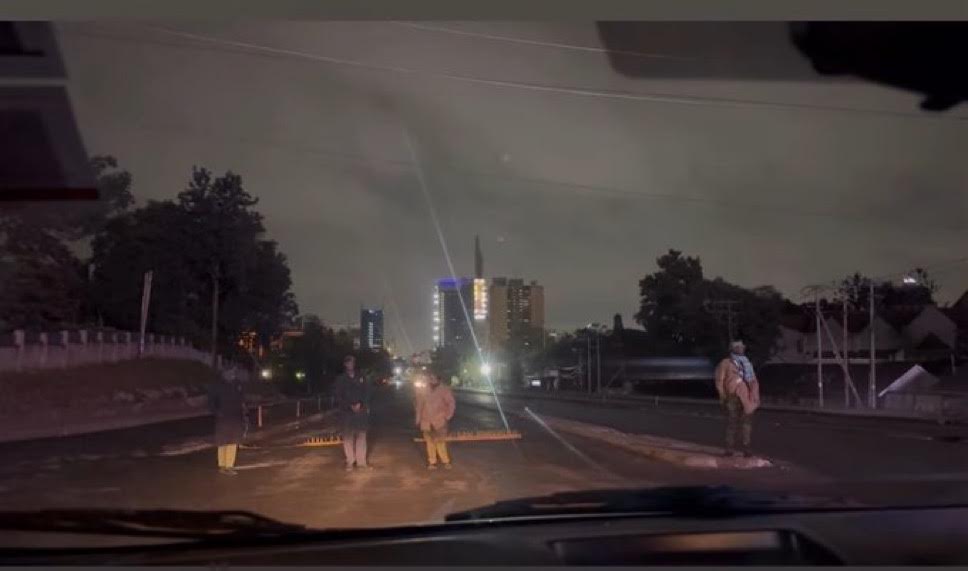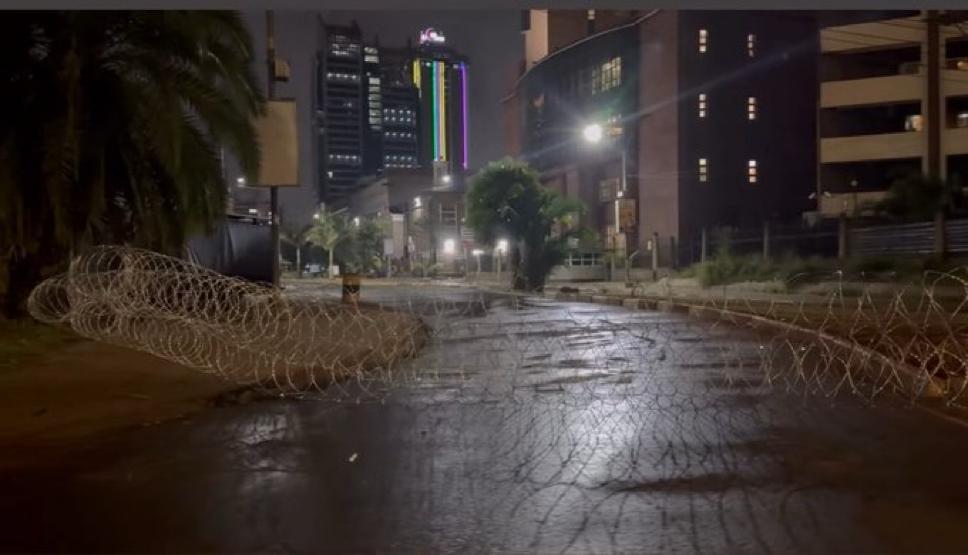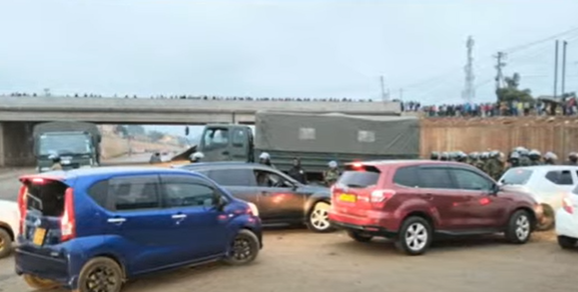
Anti-riot
police braced a morning breeze to mount roadblocks on major routes into the
Nairobi Central Business District for major searches ahead of planned Saba Saba
celebrations.
Even as
the government had insisted July 7 would be a normal working day, roadblocks
stopped both private and public service vehicles from accessing the city
centre.
This was
in fear those planning protests would disguise and surprise security agencies
in the city centre.
Roadblocks
were mounted on Waiyaki Way, Kenyatta Avenue, Jogoo Road, Mombasa Road, Thika
Road, Kiambu Road, Uhuru Highway, Valley Road and other major feeder roads.
The
police only allowed vehicles with emergency needs and those belonging to the
government.
Many
learning institutions in towns and cities have since advised students to stay at
home and resume classes on Tuesday for fear of disruptions, as witnessed during
recent protests over police brutality and extrajudicial killings.
Major businesses were barricaded in the
city with metal grills at the weekend in fear of looting.
One police
officer said they were under instructions not to allow vehicles. However,
pedestrians were allowed to walk through.
An
employee at a city hotel said he was forced to walk from Westlands to the city
centre.


There had
been calls on Kenyans to protest to mark Saba Saba.
However police
said with no leadership on those planning the protests, they would not allow it
to go on.
A similar situation
was witnessed on major roads in Mombasa. Police laid roadblocks in Likoni, Nyali
and Changamwe for checks.
On Waiyaki Way, buses and private vehicles coming back upcountry were parked around Uthiru after police blocked the road at Kangemi, with some being forced to alight there and find alternative routes home.
In Eastlands, commuters using Jogoo Road were redirected to Donholm.
The National Police Service (NPS) Sunday warned against any illegal activity during the Saba Saba protests on Monday, July 7. The NPS reaffirmed its constitutional mandate to maintain peace, law, and order, emphasizing that any violation of lawful protest will result in firm and appropriate action.
The police acknowledged widespread reports on mainstream and social media about upcoming demonstrations in various parts of the country.
While reaffirming that Article 37 of the Constitution guarantees the right to peaceful assembly and demonstration, the NPS reminded the public that this right must be exercised in accordance with the law.
The statement signed by spokesman Michael Muchiri warned that any gatherings must be peaceful and unarmed and that anyone found in possession of weapons would be prosecuted under the penal code.
It also warned that attempting to access or interfere with protected government installations would result in immediate legal action under the Protected Areas Act.
Looting, property destruction, road blockades, and incitement to violence were all highlighted as criminal offences that would be dealt with swiftly and lawfully.
The public was advised not to provoke police officers on duty, with the NPS emphasizing that confrontational behaviour toward law enforcement would not be tolerated and would be dealt with harshly.
While assuring the public of its professionalism and restraint in its operations, the NPS stated that any riotous or violent behaviour would be met with lawful force aimed at protecting people and property.
A number of civil rights organizations have mobilized for the day.
The Saba Saba movement, named after the date July 7, holds a symbolic place in Kenya’s democratic history.
Kenyans took to the streets for the approval of multiparty democracy, leading to the repealing of Section 2A of the constitution.
Before then, Kenya was a one-party state under Moi’s Kenya African National Union (KANU) regime. The 1990 protests were violently suppressed, but they eventually helped pave the way for political reforms and multiparty elections.
This year, the anniversary comes amid growing
public discontent against the government over the rising cost of living and a spate
of police crackdowns on government critics and street protests, many of which
have resulted in deaths and injuries.












